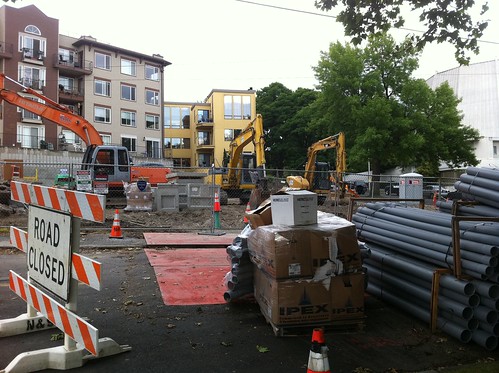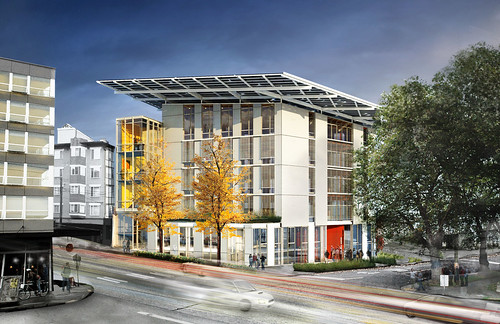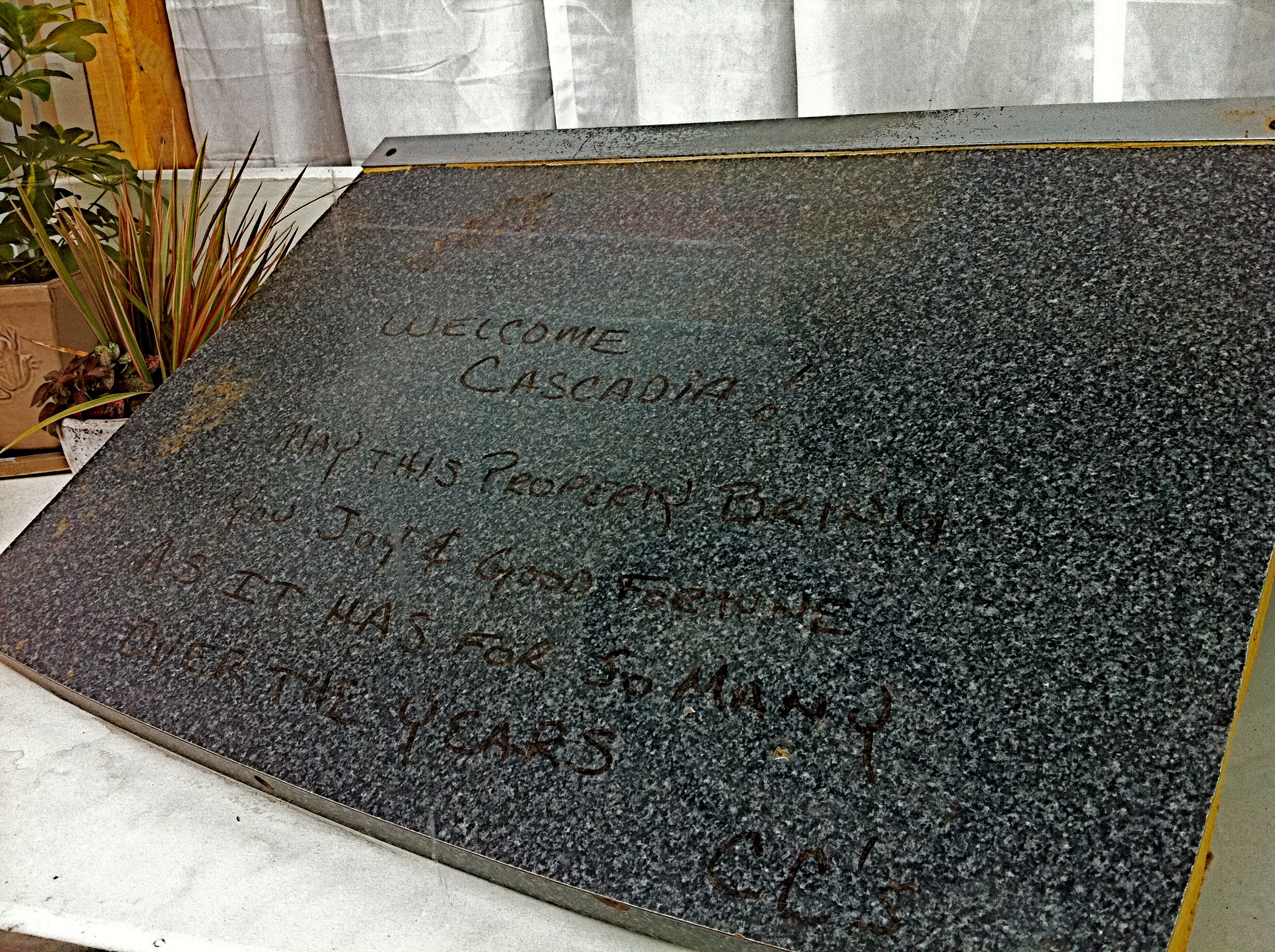
Construction on the Cascadia Center at 15th and Madison is underway. Once completed, the 75-foot building could be one of the most energy-efficient office buildings in the world, planners hope.
If all goes by schedule, construction should last 14 months, finishing up in the fall of 2012.
The building will be constructed from as many local and non-toxic building materials as possible. Its goal is to handle all its energy, water and waste needs on site.
In order to meet this goal, building tenants will have to work together. Tenants will have tools to track their energy usage, and any tenant who would like to use more energy than they are allotted will need to trade with other tenants in a marketplace of sorts.
Real estate firm Point 32 and the Bullitt Foundation are behind the Cascadia Center project, which overcame design appeals by the nearby Madison Court apartment buildings earlier this year.
Unrelated to the design appeals, said Point 32’s Chris Rogers, the designers removed plans for a south-facing solar array from the building’s design after determining they would not need it to meet the building’s estimated energy needs.
Meanwhile, construction offices have been set up in empty retail space nearby on Madison between Piecora’s and vintage shop Happy Endings, which is temporarily closed for a redesign. In the window, you can see this message left behind from the crew at the old CC’s location on one of the bar’s counters.
“Welcome Cascadia!” it reads. “May this property bring you joy and good fortune as it has for so many over the years — CC’s”





Generally King County collects a sewer capacity charge (a fee where growth pays for growth) as well as a sewer connection charge (for adding or renewing side sewers connecting to the public main). The sewer capacity charge, approximately 2-3% of construction cost, can be paid over a 15-year period. For example the money goes toward retiring the public’s debt in the county’s newly built 2-billion dollar Brightwater wastewater treatment facility.
No-one envisioned a building that does not connect to the sewer, instead relying on composting toilets, and perhaps a blackwater wetland-treatment system on-site. I wonder if requiring a properly sized sewer connection, whether or not used, should be a public health issue as well as a social equity issue. Why should a private homeowner pay the charge, while a large foundation, well heeled socially, politically and economically, escape their fair share?
I think that property owners of new construction should plan to pay their fair share What do you think?
What is fair share and what you expecting them to pay their fare share of?